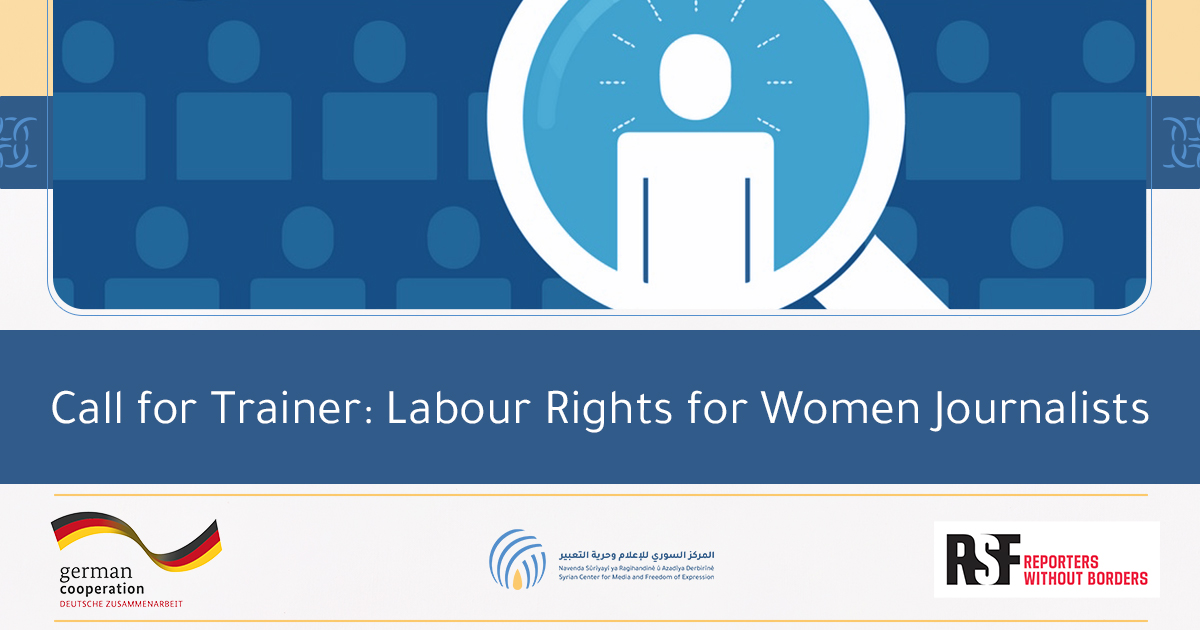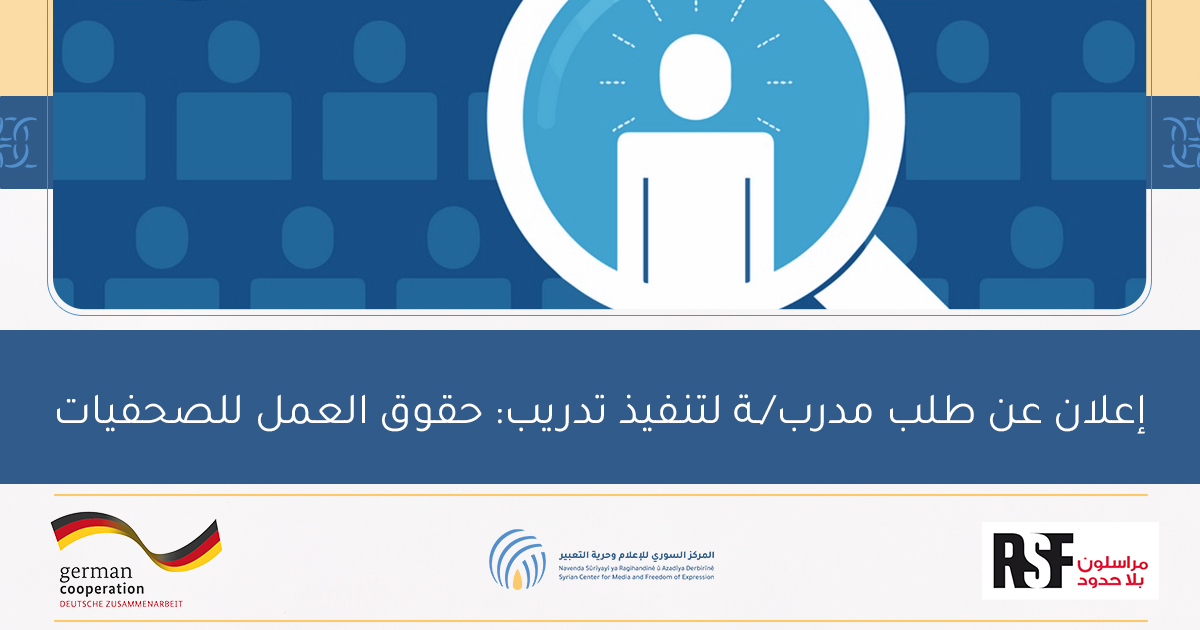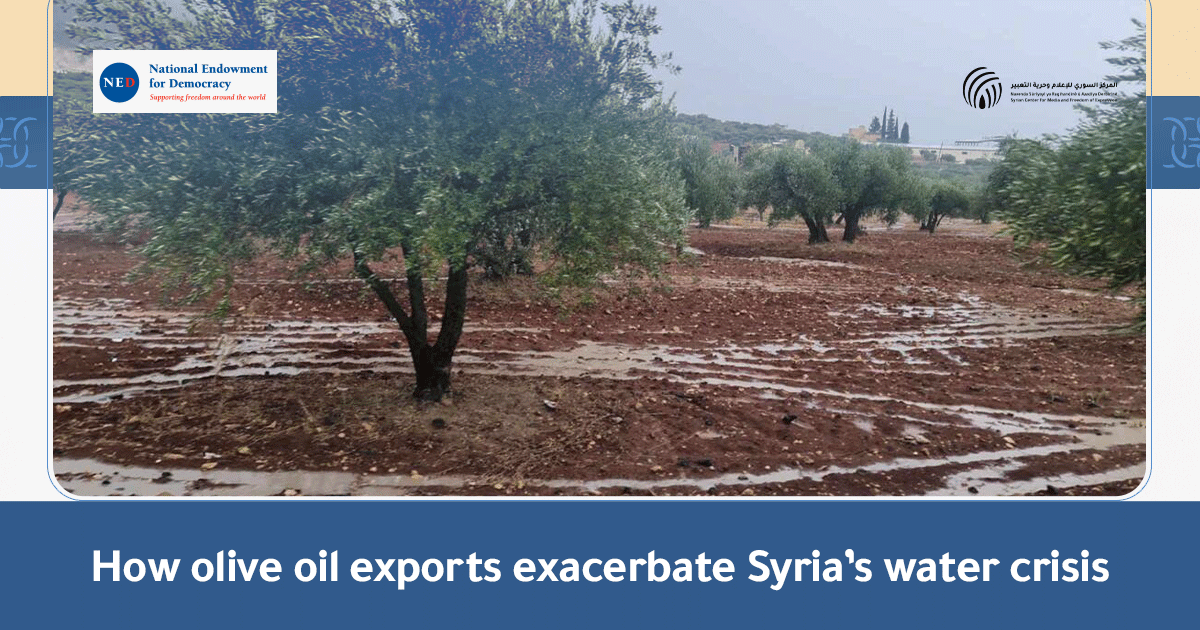April 2020
Paper from the Voices for Displaced Syrians Forum-VDSF on the impacts of COVID-19 on Displaced Syrians and the response
Introduction:
This paper was developed by the Voices for Displaced Syrians Forum (VDSF) to provide a review of the impacts of the spread of COVID-19 pandemic on Syrian refugees in general with a focus on the Middle East region. This paper concludes that the Syrian refugees are AMONG the most vulnerable and the most affected by the crisis resulted from COVID-19 pandemic.
Concerning the response, while the local Syrian-led NGOs are at the front lines responding and providing services to the refugees from Syria, the UNHCR did not yet include Syrian NGOs in policy and decision-making processes nor took practical steps to listen and consider their voices.
Throughout this paper, we will provide an overview of the main impacts for the COVID-19 pandemic on Syrian refugees. And based on our understanding of the context and our close relationships with the affected communities, we will also explain our perspectives for the best response approach.
Additionally, we will suggest a group of appropriate interventions that best suits the affected communities, including addressing the repeated exclusion for the Syrian Civil Society from the management and coordination of the humanitarian and development responses for the refugees in the region.
First: The Impact of the COVID-19 Pandemic on Syrian Refugees:
- A halt in the movement of Syrians in general, including through cross-lines inside Syria as well as the cross-borders in the region.
- The exacerbation of push factors on Syrian refugees in the neighboring countries for several reasons. However, despite the expected deterioration of living conditions in those countries, there will be no significant increase in the so called “spontaneous” return, as conditions inside Syria for a safe and dignified repatriation have further worsened.
- In Lebanon and Turkey, the discriminative and hate speech against the Syrian Refugees continues, within the same trend as before the COVID-19 crisis.
- The suspension for asylum procedures in most of the host countries, which exacerbates the refugee crisis related to the long-waiting period they already confront. Family unification procedures have been affected by asylum procedures suspension decisions, which leads to more frustration, and increases the risks of family separation and negative coping mechanisms.
- The exacerbation of poverty and destitution among the Syrian refugees and an increase in aid-dependency in all neighboring countries. This is a direct result from the collapse of resilience and self-reliance among the groups that were able to do so. Most of Syrian refugees’ households depend on day labor, which has witnessed complete suspension due to government policies to prevent the spread of the virus. While this factor also similarly affects host communities, governments’ initiatives for social support are yet exclusive to only citizens, and do not include the refugees.
- Exacerbation of child protection risks, which related to the quarantine, closure of schools, and economic pressures on households, the expose of children to different forms of child protection risks like: domestic violence, child labor, early marriage, family separation and other negative coping mechanisms.
- An increase of social tension as a result of the complete ban of movement for Syrian refugees in some countries like the Zaatari Camp in Jordan and several municipalities in Lebanon. This will exacerbate poverty and negatively affect the pursuant of durable solutions for refugees.
- As in host communities, cases of gender-based violence and school drop-out are also expected to increase.
- The prevention of the disease is highly impaired due to:
- Insufficient availability of clean water;
- Inability to purchase sterilization and personal hygiene materials in sufficient quantities;
- Large crowding in housing and the poor quality of living areas, and hence, social distancing cannot be applied effectively;
- The fragile immunity of the society, due to the general imbalanced nutritional intake as a result of poverty and destitution, will lead to fast spread of the infection.
- On the treatment from the disease, it is very concerning due to the weak medical services for refugee communities and the absence of health insurance.
- The rapid spread of the infection which is expected in the event that the virus reaches the refugee camps (due to the impairment of prevention) would lead to a high mortality rates among the refugee communities (due to the weak medical services).
Recommendations:
To the Governments of Lebanon, Jordan and Turkey: Pay attention and consider the refugee sector when designing the policies to deal with the crisis of the epidemic. This will help to mitigate the serious consequences on refugees’ ability to face the disease and the resulted worsening of social cohesion.
To all countries of asylum: Devise appropriate and safe ways to resume asylum procedures and redress long-waiting times.
To Donors: Increase funding allocated towards refugee communities in particular in light of the lack of coverage of local governments’ programs for these societies. And, transfer development funds to host countries that are currently suspended to fund emergency relief operations for refugees, with a first priority to compensate those who do not have access to livelihood opportunities.
To UNHCR: Enhance coordination and response mechanisms by listening and including the perspectives and voices of Syrian civil society at the various levels of planning, decision-making and response, in the national and regional Durable Solutions and Return Work-Groups.
To All: Launch and participate in advocacy campaigns to promote integration and rapprochement between refugee and host communities by highlighting the non-discriminative nature of the virus infection among humans and the need for solidarity to combat it. And, share transparent information and updates related to COVID-19 implications on IDPs and refugees, including measures followed and results.
Second: The impact of COVID-19 on Local NGOs (LNGOs):
- An acute drop in access to people in need and weakened ability to provide services for the following reasons:
- Lack of exceptions from the lock down and curfews imposed by the governments of the host countries: this results in a near complete paralysis of NGO workers ability to reach the beneficiaries, whether to directly assess their needs or to provide regular assistance.
- The increase of number of people in need due to the many negative impacts on society in general and refugees in particular.
- The escalation of needs’ severity, yet mostly not measured, especially in the sectors of health, water and sanitation, livelihoods, protection and education.
- The change in nature of need combined with the inflexibility of funding to LNGOs, by the UN, the INGOs and the Donors, to amend programs.
- The lack of funding for and the shortage in availability of protective tools, such as masks and special clothing, for the LNGOs humanitarian workers.
- Lack of funding opportunities due to the distraction from refugee needs and the rise of need for local aid in donor countries.
Recommendations:
Despite of the increased challenges facing LNGOs, in current circumstances they are the most capable and most suitable to support the efforts to prevent and respond to the consequences of the spread of COVID-19. LNGOs have qualified staff that are ready to move in the same sites where people in need are. They are also able to develop and deliver context sensitive programs that contribute to reducing the health, economic and social costs of the epidemic.
In this regard as well, the Global Humanitarian Response Plan for COVID19 has also emphasized the need for stronger partnerships and increased support for local humanitarian workers and NGOs. Moreover, the ICVA paper (REINFORCE, REINFORCE, REINFORCE: Localization in the COVID-19 Global Humanitarian Response) also explained how supporting LNGOs and strengthening them have become a basic need as a result of the current circumstances.
In order for LNGOs to overcome the above challenges and efficiently assist local and international governmental programs in limiting the spread of the epidemic and its impacts on societies, we (in addition to the other global recommendations to support local action) recommend:
- Donors, UN agencies and INGOs: allocate extra funding for programs to:
- Build the capacity of humanitarian aid workers on the measures to prevent and avoid transmitting the infection when mixing and dealing with beneficiaries,
- Procure prevention and protection equipment for humanitarian workers to enable them to provide services safely and in accordance to agreed health standards,
- Support international and regional advocacy campaigns to highlight the effects of the epidemic on refugee hosting countries and the need for global solidarity with the displaced because they are the most vulnerable.
- Provide flexibility in current funding available to LNGOs by agreeing to reallocate funds from projects that were halted by the epidemic to new projects that serve the response to COVID-19 e.g. reallocate money for schools’ running costs to providing distance education, or reallocate money from running costs of protection centers to awareness raising on dangers of the epidemic and prevention practices..
Third: For a better response to the COVID-19 crisis in neighboring countries:
We suggest to arrange the response plans to consider two phases:
Phase one: Urging refugee communities to adhere to the measures of social distancing and prevention:
LNGOs can play a pivotal role at this stage if they receive appropriate support and funding.
First and foremost, we recommend that the basic needs for the Syrian refugees be covered, the most important of which are basic living expenses and the payment of rents for homes and lands to the camps.
In parallel, awareness-raising and educational campaigns targeting refugee communities should be undertaken, which must be accompanied by the distribution of personal hygiene kits and household disinfection materials, as well as general protective tools such as face mask.
Educating refugees about the necessity of social distancing and asking them to stay at home while they are unable to pay their rent or provide food for their families will be harmful. Likewise, while securing the necessary livelihoods, educational and awareness programs which are not accompanied by providing in-kind materials for prevention, and providing clean water and effective sanitation, will not achieve the desired results.
In the same phase, it is necessary to directly address the consequences of lock down and curfew, the most important of which are:
- Gender-based violence: Domestic violence at the family level is a chronic issue and expected to worsen. This challenge affects host communities and refugees alike and therefore, protection programs and psychosocial support services must not be suspended.
- Child protection: The prolonged lock down and curfew often lead to affect caregivers’ ability to cope positively and respond to children needs. As a result, great risks arise that threaten the protection and welfare of children. The most important of which are domestic violence, child labor, family separation and dropping out of schools.
- Dropout from education: While Education Ministries work to provide distance education services to citizens, refugee communities fail to receive these services sufficiently. The current situation might be an opportunity to develop distance education programs for refugees at the beginning of the next academic year (2020-2021), which depends on digital media and provides equal access to refugees and host communities without discrimination.
Phase Two: Responding to the disease if it spreads among refugees:
Noting that national health programs in Syria’s neighboring countries deal with cases of COVID-19 infection for residents without discrimination, we would like to mention the importance of supporting the efforts of these countries’ to provide free health care and referral services to all infected refugees who need hospitalization.
Regarding the medical isolation of patients who do not need hospitalization and their contacts, we recommend that isolation centers be set up far away from camps, in recognition of the extreme difficulty of controlling mixing with non-infected refugees in the event that isolation centers are established within the camps or nearby.
Finally, for the Syrian refugee gatherings/camps in Lebanon, we recommend to deal with them as individuals. The UNHCR should lead the coordination with relevant authorities and the civil society to have plans for each gathering/camp, in which, the appearance of the first confirmed case of COVID-19 in a site will trigger the proposed response:
- Complete lock down of the site.
- Removal of high risk persons (i.e. people of age 60 and above and with chronic diseases, and immune deficiency) to pre-organized isolation centers.
- Provision of all basic services to residents: health, food, water … etc.
This process should continue until the virus spread in the site is controlled.
At the end, the Voices for Displaced Syrians Forum, repeats its call to UNHCR to facilitate the engagement and inclusion of Syrian civil society in refugee planning and response mechanisms at local, regional and global levels.
The VDSF is a gathering of 36 Syrian NGOs who are active in protecting and improving the quality of life of displaced Syrians in and outside Syria. We work inside Syria, in Lebanon, Turkey, Jordan, Iraq, France, Germany, and others to provide services, document violations, produce information and advocate for improved polices and response to Displaced Syrians.





